Bone density matters, especially as we age and begin to relax and take it easier physically on our bodies.
After the age of 50, it is said that nearly 50 percent of all women will experience a fracture or a break in the bones at some point or another, typically due to poor bone density or a loss of bone density naturally over time.
Typically, the bone density of a woman at the age of 65 will measure at -1.19, or -1.11 for African American women.
It is highly advisable for women over the age of 50 who struggle with bone density issues or women over the age of 60–65 to receive their own DEXA bone density scans regularly as they age.
Table of Contents
What is bone density?
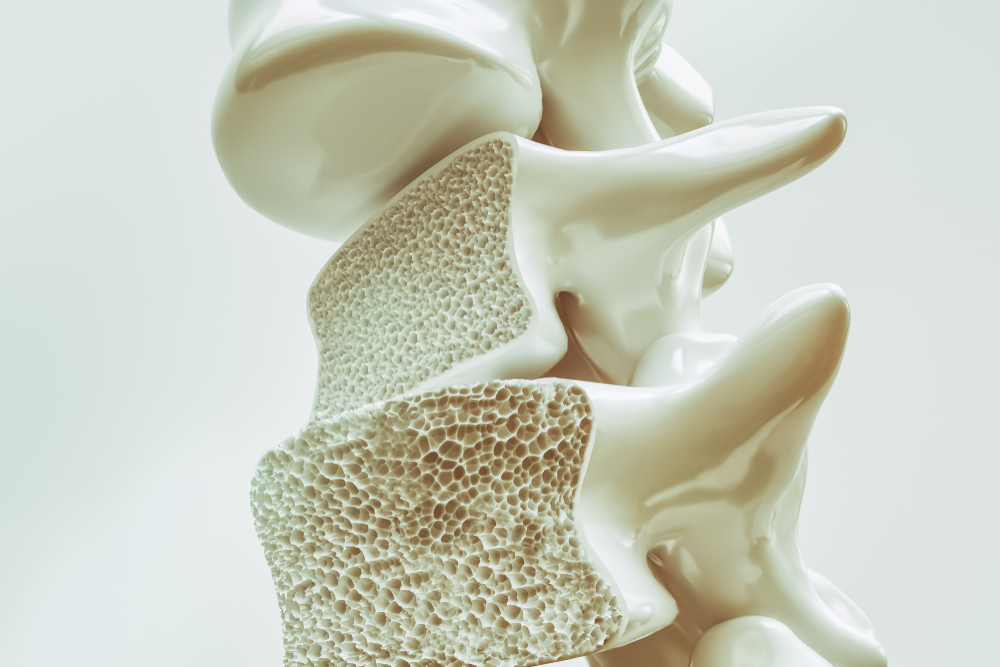
The bone density in a human being is the measurement of how many minerals (such as calcium) are detected inside of the bones.
The number of minerals that are detected in the bones during a bone density test can indicate how healthy and strong an individual’s bones are at any age or time in their lives.
Why does bone density matter?
Knowing your bone density can help you to ensure you are able to provide your body with what it needs at any stage in life.
Osteoporosis is one of the leading causes of bone density loss, and it can impact up to 50 percent of the population.
When you are familiar with your bone density and the overall health of your bones and joints, you can take preventative measures to protect and preserve your bone density for as long as possible.
What is a DEXA scan?
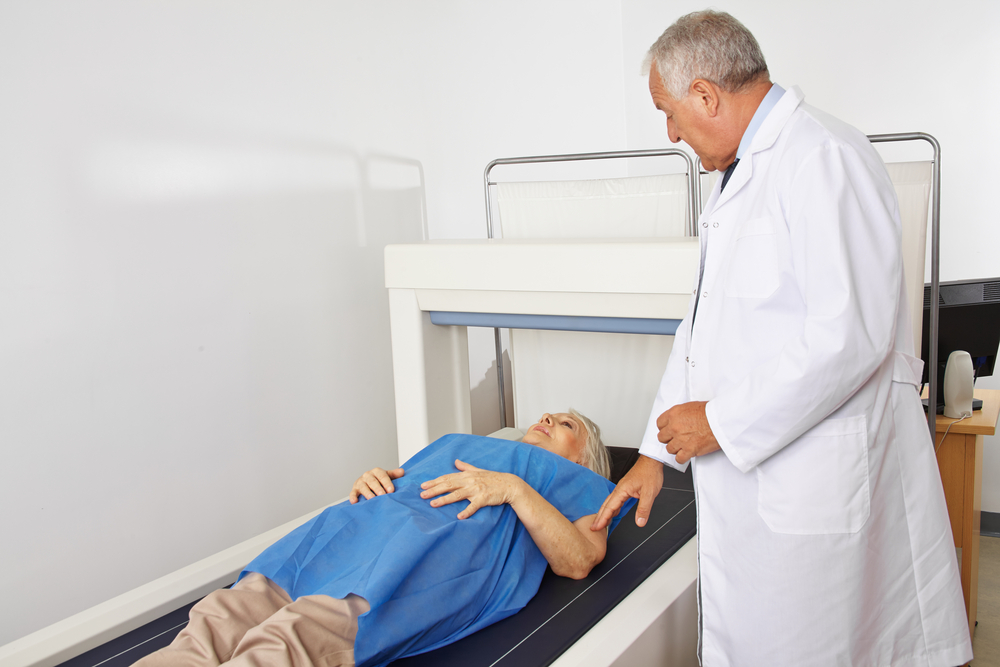
A DEXA scan is an advanced technology that uses low-energy radiation in order to scan and detect the potential thinning of bones, even at an earlier age than 50 or 65.
While men and women were required to test bone density later on in life in the past, newer technologies make it easier than ever to keep up with your bone density at just about any age.
A DEXA scan, or a dual-energy X-ray absorptiometry, uses low-energy radiation to also help calculate the overall muscle and fat that can be found in a patient’s body.
This information is extremely useful as we age, especially for women who are 65 and older and are concerned about their overall health.
How long does it take for a DEXA bone density scan?
Typically, a DEXA bone density scan will last anywhere between 15 and 30 minutes, depending on the practitioner you choose as well as your age and the setup that is available to you.
Will I feel anything during a bone density scan?
No. You will not feel anything during a bone scan, as the DEXA bone scan uses low-energy radiation and does not cause any side effects as a result.
How do I interpret the results of a bone density scan?
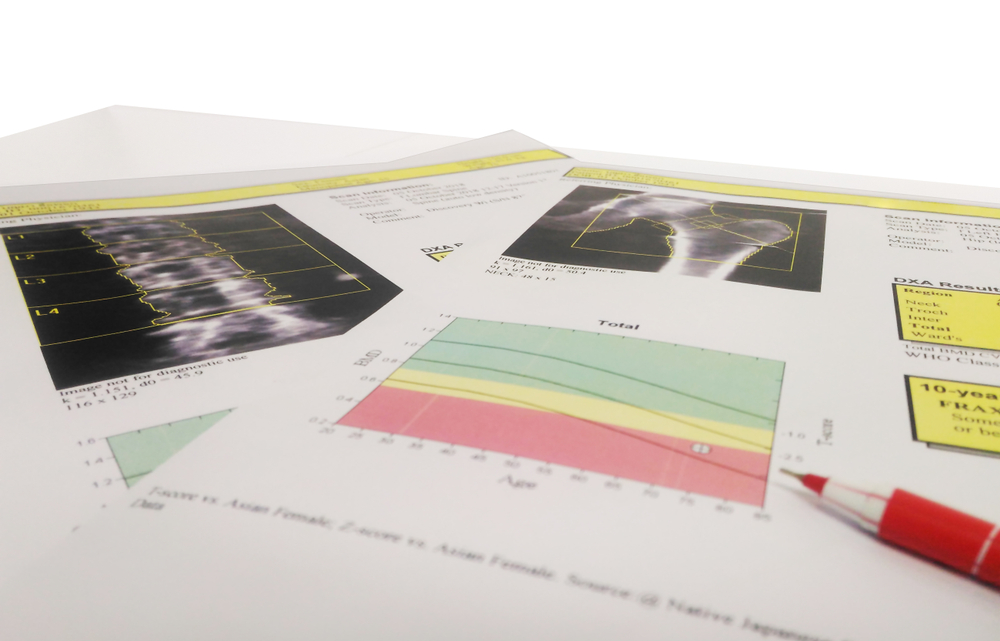
After you have completed your bone density or DEXA scan, you will likely need to wait anywhere between a few days to a couple of weeks before your doctor receives the results.
However, your results may also be accessible at an earlier time online if you currently have access to your online portal, depending on where you live as well as your current healthcare provider.
Interpreting a bone density scan is not always straightforward, as it is important to take various ailments, preexisting conditions, age, weight, and overall health into account when considering the results of a bone density scan.
Two important scores that will be presented to you with a DEXA bone density scan include the T-score and the Z-score.
Speak to your doctor regarding your bone density scan results and what your numbers mean for you based on your age and how you are feeling in general.
What is a T-score in a bone density scan?
The T-score that is given to all patients who undergo a bone density test is representative of the average bone density of a healthy 30-year-old.
This test can help you to determine at which rate your body is slowing down or degenerating, which can be helpful if you are diagnosed with osteoporosis or if you have another autoimmune or bone-related disorder.
What is a Z-score in a bone density test?
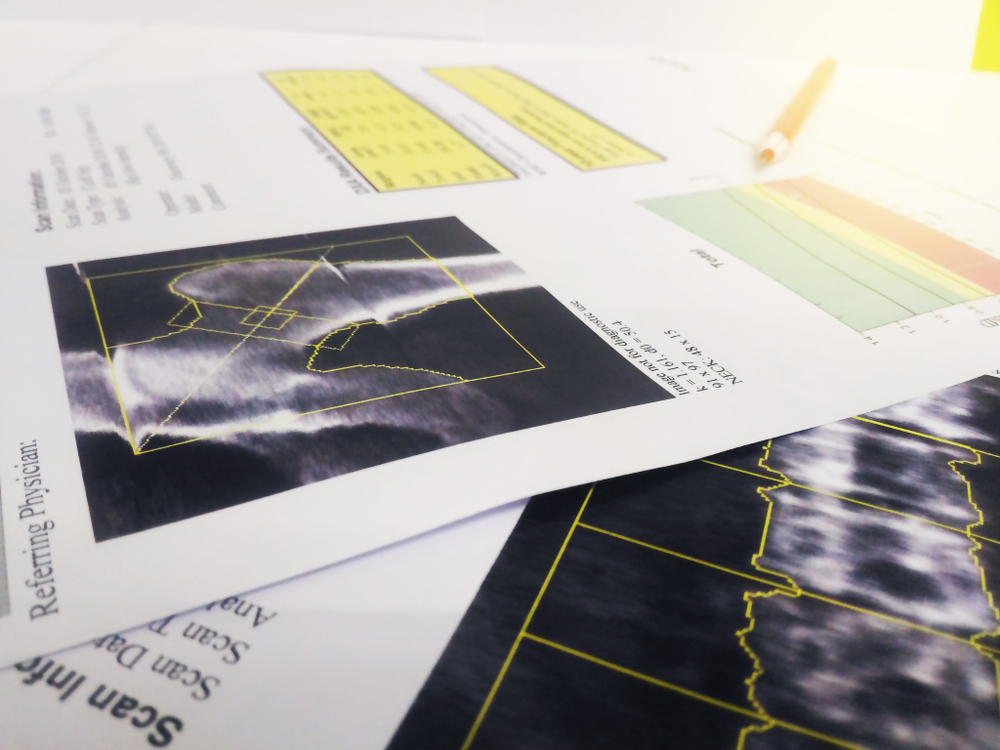
A Z-score is quite similar to a T-score when it comes to bone density tests. However, the Z-score you receive will be representative of other individuals who fall within the same age range as you.
Your Z-score on a bone density test can indicate whether or not your body is aging at an average rate, faster than normal, or even at a slower-than-average pace.
Your Z-score is extremely useful to know for practitioners who are looking to help you find relief for the conditions and ailments you may suffer from.
What does poor bone density mean?
If you have poor bone density, it likely means that your bones are much weaker than the bones of others who are around the same age as you.
Poor bone density simply means that your bones are weakening over time and may be unable to maintain proper levels of calcium and other minerals in your bones.
When you have poor bone density, you may be struggling with early-onset osteoporosis or another degenerating syndrome or condition.
Typically, individuals who are diagnosed with poor bone density have lower bone density than the average person, but the density is not quite low enough to be officially diagnosed as osteoporosis.
Signs and symptoms of poor bone density in the body
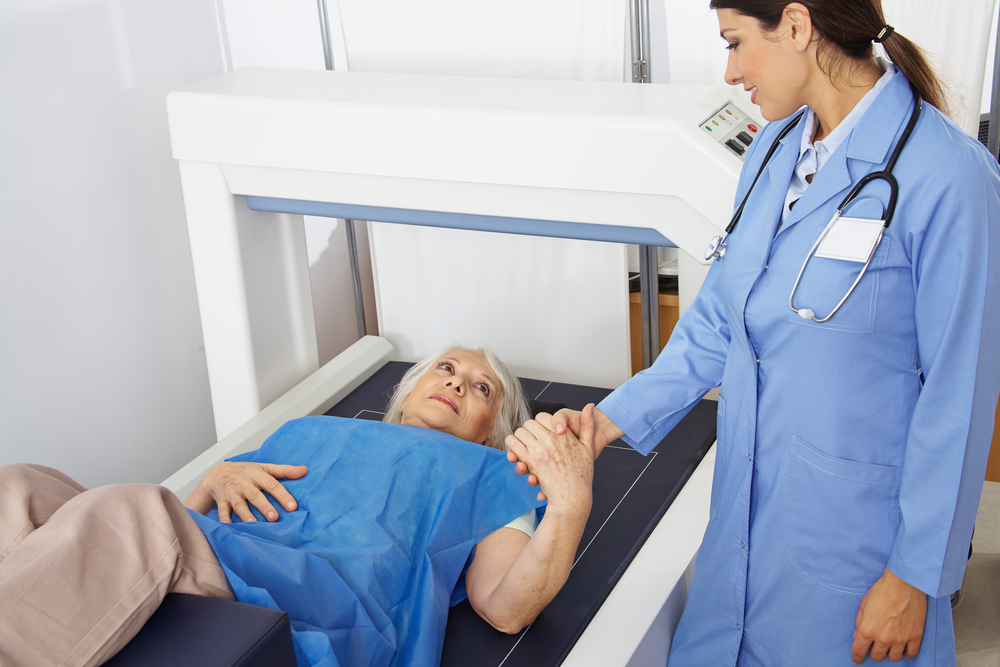
It is not always obvious when someone is struggling with poor bone density, especially if the individual is younger in age or shows no other health issues that are visible to the naked eye.
Receiving a proper diagnosis is not always a straightforward process, especially if you are unaware of what to watch for when attempting to determine what type of doctor or specialist you may need.
Some signs of poor bone density or even bone thinning and osteoporosis at any age might include:
- Poor posture: Individuals who struggle to maintain a healthy posture may be suffering from more than just feeling lazy or relaxed. Poor posture can indicate a degeneration of the spine and other bones connected to the spine and neck.
- Brittle fingernails: Brittle fingernails do not always mean that someone is suffering from poor bone density, but it does indicate that there are bigger issues going on beneath the skin. Brittle fingernails can indicate hormonal changes, thyroid problems, or even the beginning of osteoporosis.
- Weakening grip: Those who have poor bone density may notice that their grip and their ability to maintain strength are slowly weakening over time. If you have been diagnosed with osteoporosis, you may also notice that your grip and strength are rapidly disappearing, even if you attempt to maintain your strength with consistent exercise and training.
- Gum trouble: If you experience receding gums or gum trouble, you may be dealing with a bone density issue. Because teeth are actually exposed bones, they can provide valuable insight into the overall health of your bones as well as the viability and density of your bones at any time. When you notice an uptick in cavities, tooth loss, or tooth decay in general, it may be time to ask your doctor about a bone density test.
- Fitness decline: You might notice your inability to keep up with your strength and cardio training or exercises, even if you enjoy working out and do so regularly. When your bones begin to weaken, your body’s natural response will cause you to feel the need to rest and repair your body, even if it happens subconsciously. Always listen to the signs your body gives you, especially if you believe you may be struggling physically.
- Breaking or fracturing bones easily: Have you noticed that you are breaking bones or experiencing fractures much more frequently and easier than ever? If so, this may be due to a bone density issue, which should be addressed immediately with a proper bone density, or DEXA scan.
At what age should I start caring about my bone density?
While in the past it was highly recommended that both men and women have their bone density checked after the age of 65, technology has since come a long way.
Individuals as young as 30 years old are now having their bone density checked regularly, especially if they have a genetic predisposition to arthritis, osteoporosis, or even autoimmune diseases.
If you are a woman who is 65 or older, you should regularly request bone density tests, even if you do not currently suffer from any other health conditions, diseases, or ailments.
Can I repair or reverse issues related to bone density?
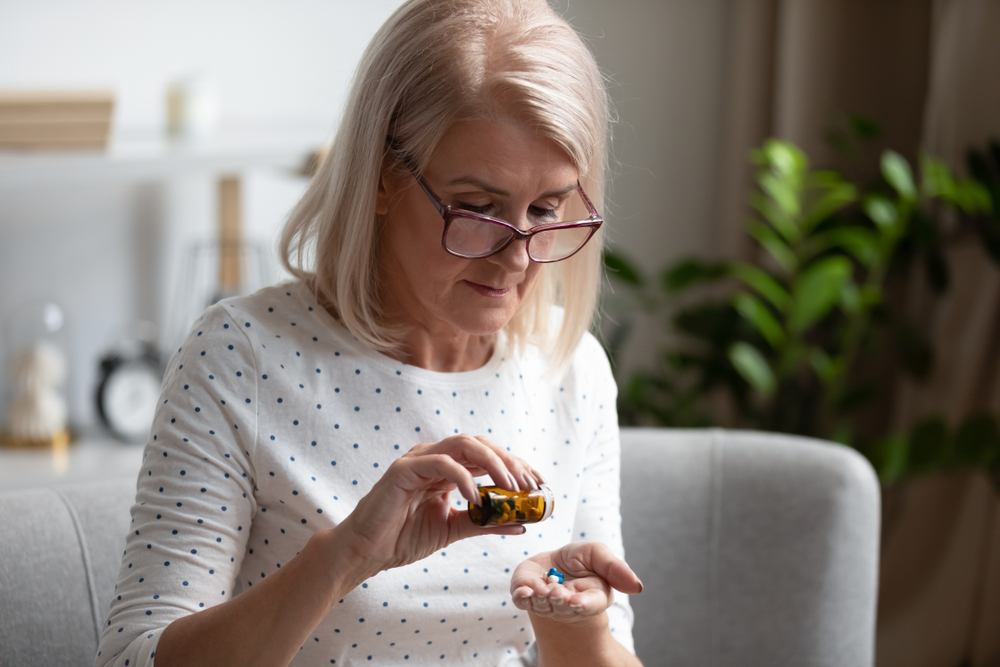
Yes, in some cases. If you are able to catch the degradation of your bone density before it becomes osteoporosis, you may be able to utilize various vitamins, minerals, and supplements to help boost your bone density and your body’s overall strength and health.
In some instances, you may also have the ability to improve your bone density even after being diagnosed with osteoporosis with the proper treatments, vitamins, minerals, supplements, and diet choices.
Tips to help increase your body’s bone density as a 65-year-old woman
If you are a 65-year-old woman and you have poor bone density or if you have been diagnosed with osteoporosis, you may be wondering if and how you can regain a sense of normalcy in your everyday life.
A few tips to keep in mind that will help you to increase and boost your body’s bone density, even after the age of 65, include:
- Exercise daily: Daily exercise for at least 30 minutes a day can significantly increase and help to maintain bone health over time.
- Stop smoking: Eliminate any smoking from your daily routine, as smoke can damage and break down the bones in the body.
- Weightlifting: Another way to build bone density is to lift weights. While it may sound counterintuitive, lifting weights can help to build resistance, muscle, and ultimately, bone density.
- Eat well: Eating well plays a major role in the bone density of your body. Ensure proper nutrition, take necessary vitamins, and boost minerals to ensure you remain as healthy as possible at any age.
Taking care of yourself and your body often requires more than the ability to eat healthily and maintain a bit of exercise each week.
Knowing how to identify potential weaknesses and issues in your bones can help to significantly reduce the risk of long-term ailments, arthritis, or weakening of the bone.
When you know how to test and manage your body’s bone density, you can make healthier changes in your own life to help improve and maintain your bone density for years to come.




